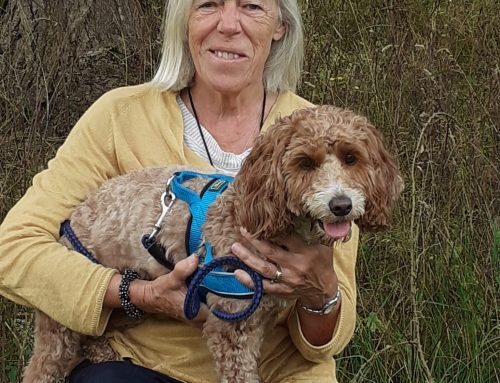Many thanks to everyone who answered our sleep survey a couple of months ago, we had an amazing response rate with 569 completed questionnaires in just 12 days.
Please note that this is a summary of the findings (we’ll be working on a new resource on Sleep and PDA) so the information below reports what respondents told us and isn’t a set of ‘recommendations’.
Main findings

- 85% of respondents reported that sleep was an issue for them or their child. Of the few who said sleep itself wasn’t difficult, 70% said that everything to do with going to bed was a demand. Although as always, for a few it’s not an issue at all and one person mentioned that sleep was great because it was a good way to escape from demands!

- 60% said that sleep had always been difficult throughout their or their child’s lives and often from birth, with around a quarter saying sleep became harder on starting school and 17% saying it got worse around puberty.
- For most respondents, professional advice and conventional approaches for sleep hygiene (including consistent routines) had been unhelpful for the most part. 60% had had some professional input, but only 8% of these had found it helped, with a further 28% saying it had partly helped.
- The top 4 areas of difficulty were: getting to sleep, going to bed, getting up & getting going in the morning and staying asleep.
- The most frequently mentioned difficulty was individuals not feeling or realising that they were tired, with several mentions that there is no gradual feeling of tiredness just a sudden realisation that they were tired.

- The next most frequently mentioned difficulties were: tolerance for demands is lower when tired; everything to do with going to sleep feels like a demand (stopping activities, going upstairs, brushing teeth, changing into nightwear etc); and anxiety about the next day. And for many, the very concept of ‘bedtime’ was difficult – because it was seen as being rather arbitary or because different bedtimes for different family members felt unfair.
- 10% responses indicated a Circadian rhythm difficulty of some sort – delayed sleep phase, advanced sleep phase, non-24 or waking extremely early.
- A quick analysis of bedtimes showed that they varied widely across the board, with younger children perhaps going to bed slightly later than average but also a noticeable number of individuals of all ages having random or no bedtimes.
- Looking at sleep onset, this seemed to be long on the whole, again varying widely but in the majority of cases seeming to take an hour or more, with many being 2-4 hours.
 Other difficulties
Other difficulties
Other difficulties mentioned included:
- Anxiety from the current day and the need to process this, worries about the next day (one respondent said “anxiety about the next day prevents sleep because if I sleep the next day will arrive faster”) and also worries about being alone.
- Problems ‘switching brain off’ or seeming to not need much sleep were mentioned a lot. Also difficulties with self-soothing were mentioned quite frequently, as was the need for physical contact with others on settling to sleep.
- Regular night-time waking, nightmares and very vivid dreams were mentioned quite frequently, with individuals then finding it very difficult to go back to sleep.
- Respondents also talked about a fear of sleep. One parent said “there are so many factors not within her control: dreams, the day coming to an end, the way falling asleep feels, not being in control while asleep etc.” An adult said “I don’t want my body to be in control of me, it generates panic. Sleep takes control away from our consciousness.”
- Night time incontinence was mentioned by several responses, as was some form of rhythmic movement disorder.
- And for some sleep is seen as being boring or a waste of time whilst others seem more naturally nocturnal or have a preference for night time. One respondent said “night time and darkness is seen as a quiet, restorative time with low demands, for instance showers often happen in the early hours when there is less pressure to do anything”.
 What helps
What helps
The top 10 things that respondents said helped, in order of priority, were:
1. Reading/listening/watching something until fall asleep – whilst first line sleep recommendations are to have no screens in the hour/hours before bedtime, removing screens was a big trigger for many PDAers who found that going to bed for another purpose other than sleep (i.e. watching or listening to something) was most helpful.
2. Flexibility – as with all helpful approaches for PDA, being open-minded and adaptable is often key.
3. Routine of own making – whether that’s brushing teeth at a different time of day or sleeping in your work clothes or, as one person said, having an espresso at bedtime rather than a milky drink!
4. Co-sleeping
5. Not following sleep hygiene recommendations, or adapting them considerably – for instance, using subtle signals to suggest bedtime (like dimming lights or closing curtains) or using other indirect ways to let someone know it’s bedtime (e.g. using their phone alarm or sending them a message/GIF) and embedding some flexibility into the bedtime process (e.g. choice of washing options or being able to skip a wash).
6. Not worrying about it/trusting sleep will come – as one parent said “Introducing yet more demands just because it’s some arbitrary ‘bedtime’ makes everyone miserable. Once we stopped trying to control it, my son’s sleep got better.”
7. Not mentioning/thinking about sleep – for instance, going to bed for another purpose (e.g. watching YouTube or chatting with a friend) and sleep coming when ready.
8. Different options on where to sleep – this might be spaces that are already created, such as a cosy/dark tent or area under a cabin bed, or a lighter cooler area, or the options of a different bedroom or someone else’s bed (subject to household arrangements) or even the sofa
9. Sleep hygiene recommendations – although several respondents said things on these lines: “Having a consistent sleep schedule helps, but my demand avoidance makes me refuse the routine of this.”
10. Pets – not just in terms of the presence and company a pet provides, but also the sensory feedback of a pet lying on or alongside you. One respondent said: “My cat gets annoyed when we go to bed really late, and equally gets annoyed when I stay up on my phone in bed – I don’t want to disappoint her!”
Other things that helped included …
- Medication – melatonin had a significant benefit for many respondents, with many mentions of it being the only thing that has made any difference. Although, for some it wasn’t effective at all, or the effect wore off, or it was too much of a demand to take it. Those with co-occurring ADHD noted some sleep benefits once ADHD medication was working well.
- Trial and error and following gut instinct rather than the ‘usual advice’ had worked for many, as had listening to others in the PDA community and knowing they weren’t alone with sleep difficulties.
- Reducing anxiety, both around bedtime and in the daytime, and for all involved (family members too) had a big impact.
- In terms of sensory adaptations, this was highly individualised … for some low lighting, black-out blinds, a weighted blanket, cooler temperatures in the bedroom, fans or other white noise worked wonders, and for others the opposite was true!
- Autonomy, with the more control or sense of control someone has over bedtime and sleep the better it tends to go. As one parent said “Letting her do it her own way worked best – it may not sound like great advice but fighting it made it worse”. Another suggestion was to have a ‘rhythm’ to bedtime rather than a routine, ie. there were things that happened in the lead-up to sleep but they didn’t need to happen in a particular way or order.
Next steps
The PDA Society is working with the Sleep Charity to develop a new resource on sleep and PDA, based on these results and the lived experience of PDA individuals and sleep practitioners, which we hope will be useful.





